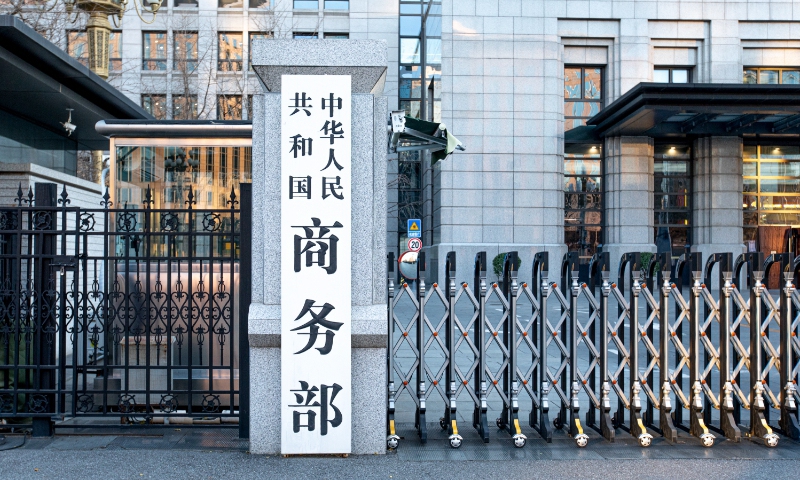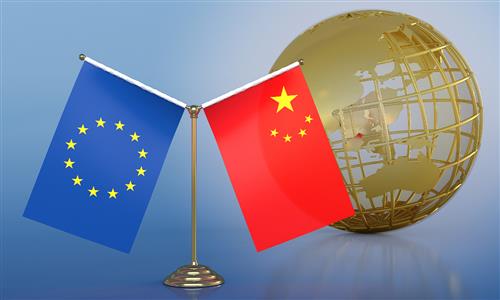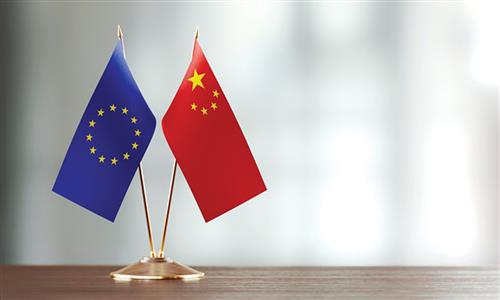Brandy ruling highlights China’s rule-based, pragmatic approach to safeguarding fair trade, offers lessons for China-EU EV talks: experts

The Ministry of Commerce of China File photo: VCG
China's Ministry of Commerce (MOFCOM) on Friday issued its final ruling after an anti-dumping investigation into brandy imports from the EU, concluding that there is clear evidence of dumping. The domestic brandy industry is under substantial threat of damage, and there is a causal relationship between the dumping and the threat of damage.
Experts told the Global Times on Saturday that China's handling of the anti-dumping investigation into EU brandy serves as a model for the responsible use of trade remedy measures under WTO rules. They believe that anti-dumping measures, when based on careful investigation and clear evidence of unfair competition, are legitimate tools under both Chinese law and WTO regulations to protect domestic industries while maintaining an open market environment.
The final dumping margin was determined at 27.7 to 34.9 percent. The anti-dumping duties and implementation of the accepted price undertakings will take effect for five years starting July 5, 2025, according to MOFCOM.
MOFCOM also announced that, following a legal review, it accepted price undertakings submitted by relevant EU industry associations and companies. Imports that meet agreed conditions will be exempt from anti-dumping duties.
Following a legal review, the investigating authority found that applications from 34 enterprises met the legal requirements and decided to accept them. A spokesperson for MOFCOM's Trade Remedy and Investigation Bureau said on Saturday that as long as these companies fulfill their commitments when exporting to China, their products will be exempt from anti-dumping duties.
Shi Xiaoli, director of the WTO Law Research Center at the China University of Political Science and Law, told the Global Times that the investigation strictly followed both domestic and WTO rules. "Once dumping, injury, and causality are confirmed, it is entirely consistent with WTO practice to adopt anti-dumping measures," she said.
Zhang Jian, vice president of the China Institutes of Contemporary International Relations, added that the ruling was based on rigorous, fact-based investigations. "The purpose is to prevent unfair competition and ensure the sound development of domestic industries, in full compliance with global trade standards," he said.
Shi also highlighted China's flexibility in resolving the case. The Ministry of Commerce's acceptance of price undertakings from 34 EU exporters, including Martell Cognac Co, reflects a pragmatic and balanced approach.
Shi noted that such commitments, recognized under both Chinese and WTO rules, allow exporters to correct pricing behavior and avoid duties if they comply.
"At a time when unilateral tariff hikes by the Trump administration have triggered a crisis for operations of global businesses, China's approach provides EU companies with an opportunity to correct course and pursue steady, law-based development in the Chinese market," Shi added. "It also creates favorable conditions for the positive development of China-EU trade relations."
Zhang pointed out that China's acceptance of guarantees instead of cash deposits further demonstrates a willingness to accommodate reasonable concerns from European businesses.
Shi added that the decision has created room for the stable development of China-EU trade ties, with leading spirits producers such as Pernod Ricard,a well-known France-based spirits producer, expressing support for the ruling.
A spokesperson of Pernod Ricard said Friday on its website the company "welcomes the conclusion of MOFCOM's antidumping investigation and remains committed to long-term sustainable growth in China," citing the minimum price undertaking as a less punitive and more predictable path forward.
Zhang stressed that this case also sends a positive message to other economies: trade remedy measures should avoid unnecessary escalation and instead foster constructive dialogue.
The resolution of the brandy case through price undertakings offers useful lessons for ongoing China-EU talks on electric vehicles. France, as a core EU member, is well-placed to contribute to the proper handling of trade differences and to encourage constructive responses to China's concerns, Cui Hongjian, director and professor of the Center for European Union and Regional Development Studies at Beijing Foreign Studies University told the Global Times.
The spokesperson said Saturday that China has consistently advocated the prudent use of trade remedy measures. The investigating authority conducted a detailed legal review of the price commitment applications and fully considered the state of the domestic industry. It concluded that adopting price commitments in the final ruling complies with China's laws and regulations and helps safeguard fair market competition.
The decision has received support from domestic industries and has been welcomed by the EU business community. The spokesperson added that accepting price undertakings also reflects China's consistent stance of resolving trade frictions through dialogue and consultation.
In a global environment marked by rising unilateralism and protectionism, China's rules-based, dialogue-oriented approach stands out as a stabilizing force for international trade, experts said.



